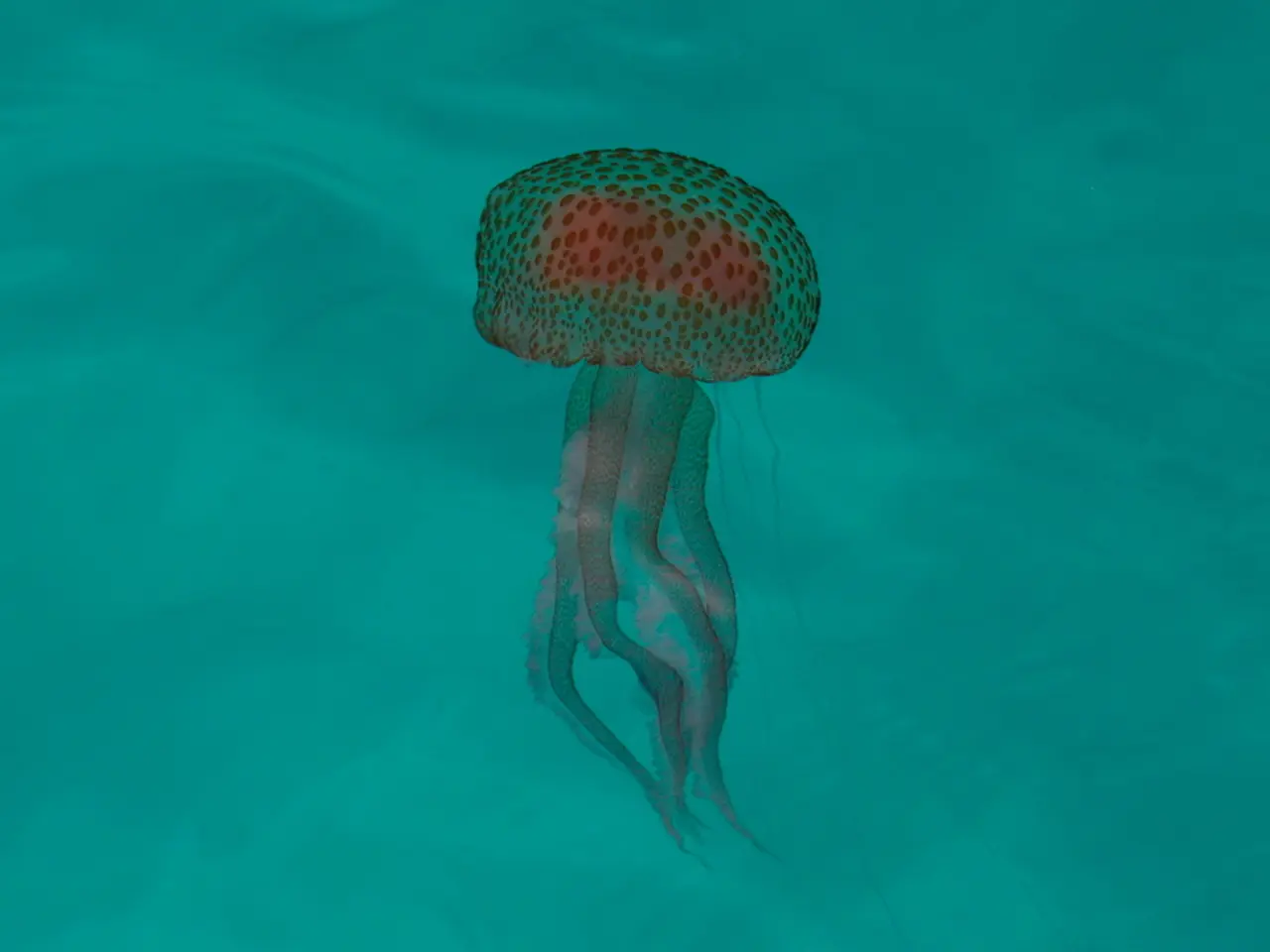Jellyfish infestation hits France's notable nuclear facility twice in a thirty-day period
In a surprising turn of events, a swarm of jellyfish has caused disruptions at the Paluel nuclear power plant in Normandy, France. This incident, which occurred in September 2023, has threatened to force a shutdown of several reactors to prevent overheating.
Paluel, the second-largest nuclear power plant in France with a 5.2 gigawatt output, saw a reduction in power output by 2.4 gigawatts due to the jellyfish intrusion. The power plant draws seawater from the English Channel, which has warmer temperatures and ideal conditions for jellyfish reproduction.
Initially, only two of Paluel's four reactors were running at full capacity. In response to the disruption, EDF, the plant's operator, reduced the power of production unit No. 3 as a precaution. The incident resulted in the shutdown of one of its four reactors, with production unit No. 4 being shut down at 9 p.m. local time on Wednesday, September 3.
The Gravelines nuclear power plant, another significant facility in France, faced a similar problem last month, with jellyfish causing four of its units to switch off automatically.
Scientists have predicted that such events could become more common due to factors such as global warming, the arrival of invasive marine species, habitat loss of predators, and over-fishing. These predictions underscore the potential long-term implications of these incidents for the nuclear industry and the environment.
Despite the challenges, the crew at the power plant is working diligently to restore the reactor's full operation. The plant teams are currently diagnosing and intervening to restart production unit No. 4 safely and restore full power to production unit No. 3.
It is worth noting that nuclear energy contributes to about 70% of France's energy consumption, according to the World Nuclear Association (WNA). This incident serves as a reminder of the delicate balance between harnessing nuclear energy and maintaining the health of our marine ecosystems.
Similar disruptions from jellyfish swarms have also affected other coastal plants, including Torness in Scotland in 2011 and Shimane in Japan. As we continue to grapple with the effects of climate change and the introduction of invasive species, it is crucial that we remain vigilant and adapt our strategies to ensure the safety and efficiency of our nuclear power plants.
Read also:
- Understanding Hemorrhagic Gastroenteritis: Key Facts
- Stopping Osteoporosis Treatment: Timeline Considerations
- Tobacco industry's suggested changes on a legislative modification are disregarded by health journalists
- Expanded Community Health Involvement by CK Birla Hospitals, Jaipur, Maintained Through Consistent Outreach Programs Across Rajasthan








